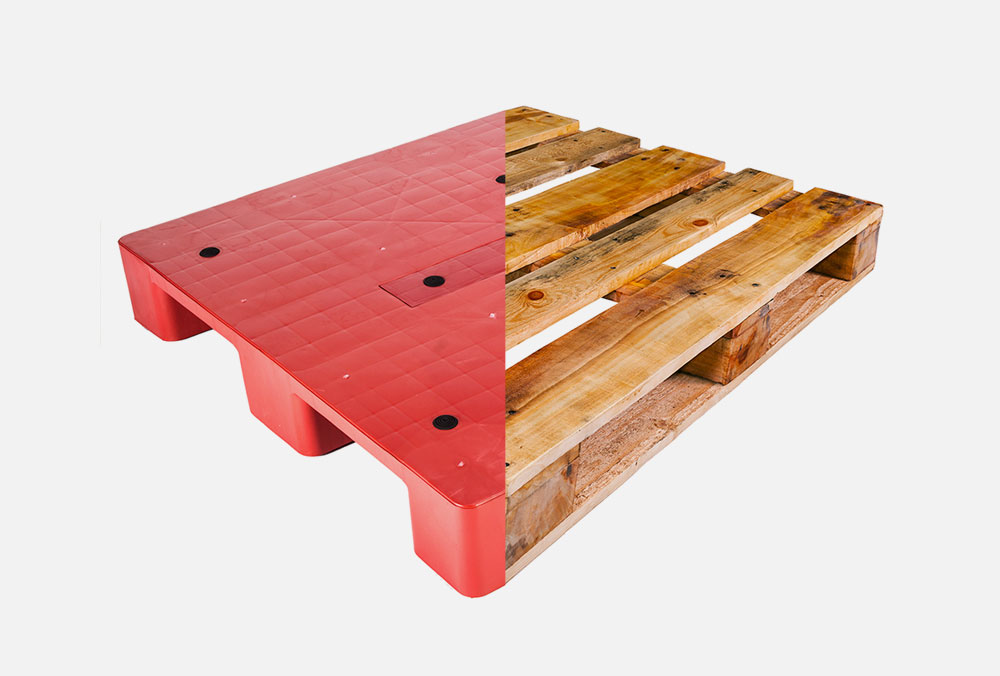Wooden Pallets: An Eco-Friendly Alternative To Plastic

At any given time, there are an estimated 4 billion pallets circulating in the United States. With these numbers in mind, the environmental impact is significant. But there is a long-standing debate over whether plastic or wood pallets are more eco-friendly.
To get to the bottom of this mystery, Penn State researchers conducted an in-depth study of comparisons between the two materials. As a result, they have determined that wood pallets are more sustainable and eco-friendly than pallets made from plastic.
The Study
The Penn State study involved a “life-cycle assessment” for both plastic and wood pallets. Some of the factors taken into consideration were the environmental impact of resources consumed and released emissions. To further gauge environmental impact, Penn State researchers considered the following factors: aquatic ecotoxicity, non-renewable energy, global warming, and influence on ozone layer depletion.
Their findings were published in the Journal Of Industrial Technology and established that wooden pallets create a slightly lower carbon footprint than plastic pallets. One important consideration is how wooden pallets are treated. For example, heat-treated wooden pallets have a carbon footprint 20-30% smaller than those treated with methyl bromide fumigation.
Although plastic pallets tend to have a longer life cycle than wooden pallets, the sources they are derived from make their carbon imprint significant. Although the wooden and plastic pallet industries have conducted their own sustainability studies in the past, the Penn State study was intended to provide an unbiased alternative.
The Big Picture
As the globe moves toward more environmentally sustainable practices and considers carbon footprints, studies like the one by Penn State are necessary and beneficial. With millions of pallets circulating at any given time, understanding the environmental impacts of these items is important.
Although the superior sustainability of wooden pallets is labeled as “slight” by the Penn State study, experts remind us that taking small, deliberate steps in the right direction is far more effective than doing nothing at all.
Wooden pallets are used in a wide variety of ways and are in integral aspect of the transportation of necessary goods in the supply chain. Pallet reuse is common, and durable, high-quality wooden pallets can effectively last a long time.
Wood: An Eco-Friendly Choice
It’s no secret that wood is one of the most eco-friendly materials on the planet. Wood can be recycled into any number of things and grows naturally. Even if a wooden pallet has reached the end of the line in terms of shipping, it can be repurposed in any number of useful ways.
It’s also quite simple to refurbish a worn-out wooden pallet. This makes wooden pallets a cost-effective choice with a lot of potential for longevity and sustainability. When synthetic material is rejected in favor of wood, carbon emissions are impacted in a positive way.
Wood is not only less expensive and more durable than plastic, its carbon footprint makes it the clear eco-friendly option. By reducing costs and carbon emissions, wooden pallets help impact an organization’s carbon footprint, and the environment, in a positive way.










Leave a Reply